2019 SoLAR Executive Committee Nominees
January 7, 2019
We are pleased to present the following candidates as nominees for election to the SoLAR Executive:
Candidates for SoLAR Executive Member at Large
(10 Candidates, 6 Positions Available)
Sheridan Gentili, University of South Australia, Australia
Vitomir Kovanovic, University of South Australia, Australia
Anouschka van Leeuwen, Utrecht University, the Netherlands
Zachary Pardos, University of California, Berkeley, USA
Sasha Poquet, National University of Singapore, Singapore
Maren Scheffel, Open University of the Netherlands
Craig Thompson, University of British Columbia, Canada
Yi-Shan Tsai, University of Edinburgh, UK
Jose Ruiperez-Valiente, Massachusetts Institute of Technology, USA
Lorenzo Vigentini, University of New South Wales, Australia
Candidates for SoLAR Executive Student Member
(3 Candidates, 1 Positions Available)
Shibani Antonette, University of Technology Sydney, Australia
Sadia Nawaz, University of Melbourne, Australia
Quan Nguyen, Open University, UK
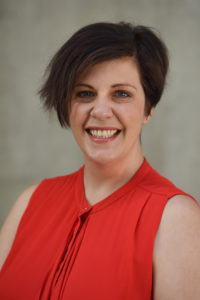 Sheridan Gentili, Australia
Sheridan Gentili, Australia
University of South Australia, Teaching Innovation Unit
Interest in Learning Analytics: Interested in exploring how learning and teaching tools / technology, through the use of learning analytics, can be used to improve the student experience and academic performance. More specially, I’m interested in exploring the learning and teaching experiences and behaviours that encourage high achieving students and those of average achieving students, with an aim to better inform our teaching practices to encourage student learning across all academic levels.
Biography: Sheridan Gentili is the Associate Director: Teaching Innovation Unit at the University of South Australia (commence in 2017). She has a Ph.D. in Physiology and a Graduate Diploma in Biostatistics. Sheridan’s research interests include exploring how learning and teaching tools / technology, through the use of learning analytics, can be used to improve the student experience and academic performance. The propensity of academic staff to use academic performance data as indicators of success is distal of earlier learning behaviours. Therefore, Sheridan is interested in exploring the impact that personalised feedback using real-time data of online learning behaviour has academic success. Specifically, her work focusses on exploring the learning and teaching experiences, and behaviours that encourage high achieving students and those of average achieving students, with an aim to better inform our teaching practices to encourage student learning cross all academic levels.
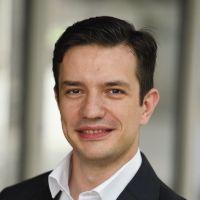 Vitomir Kovanovic, Australia
Vitomir Kovanovic, Australia
University of South Australia
Interest in Learning Analytics: Learning analytics has a tremendous potential to improve our understanding of human learning and to advance the current educational practices. With the SOLAR’s pivotal role in the LA field, serving on the executive committee would be a fantastic opportunity for me to contribute to the broader LA community by engaging into some of SOLAR’s excellent initiatives. Specifically, I see an enormous potential of i) expanding current organisation of LASI events to the broader LA community, ii) improving regular and institutional members’ benefits, and iii) expanding support to doctoral students, and I would like to contribute to those goals actively.
Biography: I am a Research Fellow and Data Scientist at the University of South Australia, Adelaide, Australia and visiting researcher at the University of Texas at Arlington, TX, USA. I also currently serve as an academic editor of PLOS ONE academic journal for education and pedagogy sections. Before my academic career, I worked for four years as a senior software engineer on developing large distributed information systems.
In November 2017, I completed my doctoral studies at the University of Edinburgh, UK, in which I examined the use of LMS trace data and learning analytics for improvement of inquiry-based online learning. I (co-)authored more than 50 publications on learning analytics, educational data mining, MOOCs, and educational technology. I also first-authored the paper that won LAK’15 best paper award and co-authored a best-paper nominee at LAK16 conference.
I am also an active member of the learning analytics community; I served as a local co-chair for the LAK’16 conference, web-chair for the L@S’16, program co-chair for the LWMOOCs’16 conference, and track-chair (big data and analytics) for IEEE TALE’18 conference. Finally, I also organised numerous workshops at LAK, LASI, and ALASI events and participated in a significant number of learning analytics initiatives.
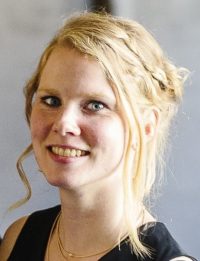 Anouschka van Leeuwen, the Netherlands
Anouschka van Leeuwen, the Netherlands
Utrecht University, the Netherlands
Interest in Learning Analytics: All of my scientific work focuses on teacher decision making and the role of learning analytics in this process. My main interest is in how teachers make use of data about their learners, and my work focuses on a number of questions related to this issue. For example, how do teachers translate LA into pedagogical action? How can LA be presented to teachers in an accurate yet comprehendible way? Do LA help teachers make their diagnosis of their learners more accurate? Thus, I view LA as a valuable tool to support teaching and learning.
Short biography: Anouschka van Leeuwen studied Artificial Intelligence and Educational Sciences and finished her dissertation in 2015, which focused on teacher support of collaborative learning and how learning analytics may aid teachers to enhance their diagnosis and subsequent interventions. In 2015, she obtained a grant to perform a systematic review of the effect of teacher support on collaborative learning. In 2016, Anouschka obtained a Rubicon grant to further study the role of learning analytics in the form of teacher dashboards. She specifically focused on the process how teachers interpret information about students and what type of aid dashboards should offer to support accurate and in-depth teacher diagnosis of students’ behavior. Anouschka is currently employed at Utrecht University as assistant professor. Her research and teaching activities focus on the following topics: collaborative learning, learning analytics, teachers’ use of data, and blended learning. Her work has been presented at international conferences and has been published in international, peer reviewed journals.
 Zachary Pardos, USA
Zachary Pardos, USA
University of California, Berkeley
Interest in Learning Analytics: Scaling sound pedagogical practice through theory and technology.
Biography: My research advances the technical and practical uses of big data and AI to better understand the nature and construction of knowledge in K-16. My current projects focus on increasing upward mobility in the California postsecondary system and using behavioral and semantic data to map out paths to cognitive and career achievement in K-16. I earned my PhD in Computer Science at Worcester Polytechnic Institute. Funded by a National Science Foundation fellowship, I spent extensive time with K-12 educators and students working to integrate educational technology into the curriculum as a formative assessment tool. I have published 56 papers related to learning analytics and hold several academic leadership positions in the community, including posts as an editorial board member for the EDM and AIED journals, executive committee member for the Artificial Intelligence in Education Society, and program committee member for the 2018 education conferences; ICLS, ITS, LAK, AIED and L@S. In 2013, I completed a post-doc studying MOOCs at MIT CSAIL. At UC Berkeley, I hold an Assistant Professorship in Information and Education. I direct a research lab on Computational Approaches to Human Learning and teach courses on data mining and analytics, digital learning environments, and machine learning in education.
 Sasha Poquet, Singapore
Sasha Poquet, Singapore
Institute for the Application of Learning Analytics and Educational Technology (ALSET), National University of Singapore
Interest in Learning Analytics: I view learning analytics as a negotiated space with potential to become more than a sum of the problems, methods and theories driven by diverse disciplines and stakeholders. My interest is to contribute to a community that negotiates and jointly defines learning analytics problems and solutions. As a SOLAR member, I want to strengthen feedback loops between the distributed Solar activities – from Solar-supported events, LASIs, SIGs, and members at large. My practitioner focus is on empowering educators in Asia to engage with learning analytics. Through my research I try to strengthen social sciences voice in the multivocality of our community.
Biography: Sasha Poquet is an early career researcher at the Institute for the Application of Learning Science and Educational Technology at the National University of Singapore. Her learning analytics agenda aims to advance understanding, evidence, and practices facilitating the impact of social factors in educational settings. Sasha approaches her research in learning networks as an experienced teacher and a social scientist. In her role at ALSET, she enjoys bridging educator track staff with academic domain experts and IT specialists. From 2017-2019, Sasha served on SOLAR Executive Committee, first as a student representative, and then as a treasurer. She received her PhD in Learning Analytics at the University of South Australia; an MA in Educational Sociology from Aarhus University, Denmark and Deusto University, Spain; and a BA in Education and Teacher Training in Ukraine.
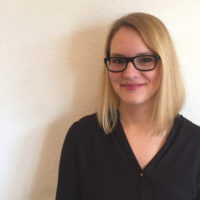 Maren Scheffel, the Netherlands
Maren Scheffel, the Netherlands
Open University of the Netherlands
Interest in Learning Analytics: Doing research in the field of learning analytics to me means taking a holistic approach. I always try to look at things from different angles, e.g. teacher and learner side; technology and pedagogy; research and practice. Involving a wide range of stakeholders, using different methodologies, and gathering input from divers sources allows us to create a holistic view of the learning and teaching processes and provides us with the evidence of impact the field is looking for. Being part of SoLAR is a great way to engage with the community and to connect the different aspects of learning analytics.
Biography: Maren Scheffel is an assistant professor within the Technology Enhanced Learning Innovations (TELI) department of the Open University of the Netherlands’ Welten Institute, the Research Centre for Learning, Teaching and Technology. With a background in computational linguistics she started to work in the field of technology-enhanced learning in 2009 and has since then been involved in the coordination and management as well as the research work of several European projects (e.g. LACE, SHEILA, CompetenSEA). For her PhD that she obtained from the OUNL in 2017, she developed the Evaluation Framework for Learning Analytics (EFLA). Next to progressing this work further, her research now also delves into the connection of learning analytics and learning design as well as dashboards for self-regulated learning support. Maren has been involved in the international TEL and LA community for many years. She has organised conferences and workshops and has served as a reviewer for journals and conferences on many occasions. She currently acts as one of the Programme Chairs of EC-TEL2019, is member of the editorial board of the Journal of Learning Analytics, of the SoLAR SIG LACE, of the SoLAR Inclusion Working Group, and is vice chair of the SURF SIG Learning Analytics.
 Craig Thompson, Canada
Craig Thompson, Canada
University of British Columbia
Interest in Learning Analytics: I work with students, faculty and staff at UBC to transition tools from learning analytics research into practice and facilitate access to data and analytical techniques. I have helped organize learning analytics hackathons for students, most recently focused on use of the Canvas API. My research interests focus on using machine learning to predict student outcomes, and I have led workshops and tutorials at LAK and LASI on the topic. I am driven by a desire to empower students and educators with the skills and tools needed to access, make sense of, and act upon their own data.
Biography: Craig Thompson is a Research Analyst in the Centre for Teaching, Learning, and Technology at the University of British Columbia. He currently works on UBC’s Learning Analytics Innovation Pilot project. The aim of this project is to introduce learning analytics into the regular teaching and learning practice of UBC to assist in evidence-informed decision making and action.
Prior to joining UBC, Craig worked at the University of Saskatchewan where he implemented several learning analytics projects, including a mass-personalized student advice platform, interactive visualizations of student enrolment and demographic data, and an early alert system to identify and assist students at risk.
Craig’s academic background is in machine learning, having earned a Master’s degree in Computer Science from the University of Saskatchewan in 2011.
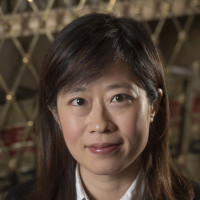 Yi-Shan Tsai, United Kingdom
Yi-Shan Tsai, United Kingdom
University of Edinburgh
Interest in Learning Analytics: My research has primarily focused on policy and strategy development for the use of learning analytics in higher education. In particular, I am interested in enhancing learner agency in the implementation of learning analytics and bridging the gaps between different stakeholders in terms of their perceptions and expectations of learning analytics. I am also interested in leveraging storytelling elements in feedback communications.
Biography: Yi-Shan Tsai is a research associate in the School of Informatics at the University of Edinburgh, with an affiliation to the Centre for Research in Digital Education in the Moray House School of Education. She holds a PhD and an MPhil degree in Education from the University of Cambridge. Her research interests span from learning analytics and educational policy to reading cultures and multimodal texts. She has worked on a number of large multinational research projects, which involve 17 different institutional and organisational partners in Europe and Latin America altogether. Prior to joining academia, she worked as a primary school teacher, a biographical author, and an editor. She has served as an assistant editor for the Journal of Trainee Teacher Education Research and a reviewer for a number of journals and conferences, including the International Learning Analytics & Knowledge Conference (2018-2019), Pacific Asia Conference on Information Systems (2018), Journal of Learning Analytics (2018), and Journal of Graphic Novels and Comics (2018).
 Jose Ruiperez-Valiente, USA
Jose Ruiperez-Valiente, USA
Massachusetts Institute of Technology
Interest in Learning Analytics: José started working on learning analytics 6 years ago as part of his master thesis and has continued ever since. His PhD focused on visualization dashboards (he implemented ALAS-KA for Khan Academy and ANALYSE for Open edX), behavioral modeling (cheating, collaboration or gamification interest) and prediction of learning outcomes (learning gains and course completion) applied to MOOC environments. Currently, Jose’s research is focused on large scale MOOC analytics to differentiate between universal and context-dependent patterns and in applying learning analytics to game-based assessment environments for children.
Biography: José completed his BEng and MEng in Telecommunications at Universidad Católica de San Antonio de Murcia (UCAM) and Universidad Carlos III of Madrid (UC3M) respectively, graduating in both cases at the top of his class. Afterwards, he completed his MSc and PhD in Telematics at UC3M while conducting research at Institute IMDEA Networks in the area of learning analytics and educational data mining. During this time, he completed two research stays of three months each, the first one at MIT and the second one at the University of Edinburgh. He has received over 10 academic and research awards and has published more than 30 scientific publications in journals and conferences of his area of research. Currently he is a postdoctoral associate at the CMS/W department at MIT where he is part of the Teaching Systems Lab and also collaborates with the Education Arcade in applying learning analytics to large scale free online courses and to game-based environments to enhance human knowledge on how we learn. http://joseruiperez.me/
 Lorenzo Vigentini, Australia
Lorenzo Vigentini, Australia
University of New South Wales
Interest in Learning Analytics: I have been involved with learning analytics before it was known as LA, when the use of data in education was focusing on test performance and simple behavioural tracing. With an eclectic mix of expertise spanning from ‘soft’ to ‘hard’ disciplines, I believe that I represent the full range of disciplinary contributions in the field of LA. My work is multifaceted with contribution to dashboard development in on-campus and MOOCs, the use of data for educational evaluation and innovation, personalisation of feedback at scale and institutional deployment of ethical uses of student data.
Biography: Lorenzo is the Academic Lead Educational Intelligence and Analytics at UNSW Sydney based in the Office of the Pro-Vice Chancellor Education. He has several years of experience in Higher Education and has a wide expertise in the development and implementation of IT/e-learning projects.
With a multidisciplinary background in psychology, education, research methodology, statistics, data mining and computing, he drives and supports a range of projects which involve the implementation of learning analytics, the evaluation of projects/initiatives and the development of novel technologies. His expertise is in learning processes at the crossing between cognitive and differential psychology, education and human-computer interaction. Lorenzo’s main interest is technology, its use, its evolution, its interaction with learning and the interface between human and machines (as well as physical interface between computer vision and brain activity monitoring) in both physical and virtual spaces.
Recent work includes the Australian OLT collaborative grant lead by Abelardo Pardo with 7 other institutions on the personalisation of feedback at scale and the development of the OnTask tool. He is a co-author of several chapters with active members of the LA community, including a chapter on video analytics with Negin Mirriahi in the Handbook of LA.
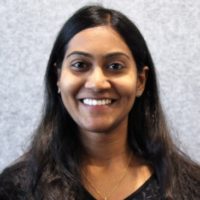 Shibani Antonette, Australia
Shibani Antonette, Australia
University of Technology Sydney
Interest in Learning Analytics: My research in learning analytics focuses on text analytics and its applications to support learning. In my doctoral research on writing analytics, I integrate automated feedback and learning design to improve student writing. My goal is to bridge the gap between the technical and the socio-pedagogical aspects of learning analytics for maximum impact. At LAK 2018, I was funded by SoLAR to participate in the Doctoral consortium, where I met many other junior scholars of the LA community. I understand what student needs are, and would like to give back to the community with my contributions in the executive team.
Biography: Shibani Antonette is a PhD candidate in Learning Analytics at the Connected Intelligence Centre, University of Technology Sydney (UTS), Australia. With a background in computer science engineering, she is interested in developing applied technologies that can transform real-life practices, particularly in education. She previously worked as a research associate at the National Institute of Education, Singapore where she employed text mining techniques to measure teamwork in student chat and develop students’ teamwork competency in schools. Her current doctoral research is on the topic of ‘Writing Analytics’ to develop automated feedback for improving student writing in the higher education context.
Shibani has been involved in the international Learning Analytics community by presenting her work in three LAK conferences, and has participated in three Australian Learning Analytics Summer Institutes (A-LASI). She has chaired/co-chaired four workshops in LAK and A-LASI to build writing analytics literacy within the LA community. She has been awarded scholarships from UTS, SoLAR and APSCE (Asia-Pacific Society for Computers in Education) to present her doctoral research work. More information at: http://antonetteshibani.com/
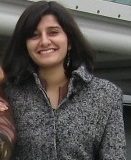 Sadia Nawaz, Australia
Sadia Nawaz, Australia
University of Melbourne
Interest in Learning Analytics: I am an enthusiast researcher and highly interested in joining the SoLAR executive committee as it will provide me with networking opportunities. I will be able to get connected to the senior researchers in this area and be able to gain a first-hand experience on the decision-making process which is shaping the future of this field.
As for my research background, my current work focuses on students’ emotions in digital learning environments. Particularly, I am interested in identifying the LA based behavioural markers of confusion. I believe that, through this work we will be able to better understand students’ confusion and provide them with effective and timely interventions.
Biography: Sadia is a graduate student at the University of Melbourne (UoM). She is affiliated with the School of Computing and Information Systems (CIS) and the Melbourne Centre for the Study of Higher Education (CSHE). She had been on the organising committee of Doctoral Colloquium 2018 and was able to accumulate more than 10K AUD through industrial sponsorships. She also won the Google best poster award at the colloquium. At UoM she had been also responsible for handling and processing Coursera back-end data.
Prior to joining the University of Melbourne, she worked as Data Management Consultant at Purdue University, USA from 2011 to 2013. She also received a Master of Science in Electrical and Computer Engineering from Purdue in 2011.
Sadia is a mom of two adorable kids. In her spare time, she likes to teach Urdu and Scratch.
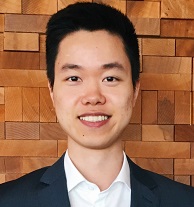 Quan Nguyen, United Kingdom
Quan Nguyen, United Kingdom
Open University, UK
Interest in Learning Analytics: I am interested in using learning analytics to support design for learning by examining how student behaviour aligns with learning activities designed by teachers. I am working toward providing actionable feedback to teachers such as identifying tricky concepts, procrastination patterns, and dropping out patterns as a result of learning design. I am an R-enthusiast and keen to learn more about new statistical/data mining techniques.
Biography: Quan Nguyen is currently a PhD candidate in Education Technology at the Open University UK (2016-2019) and working as an Associate Lecturer in Applied Statistics at University of Arts London. His work in connecting learning design with learning analytics received the best full paper award in LAK18, best paper award in HCII17, and was selected by SoLAR to present at the Alliance Best Paper session at the London Festival of Learning 2018, which gathered award-winning research from seven leading conferences in the field: L@S, EDM, AIED, ST&D, ISLS, EATEL, and SoLAR.
I want to contribute to the development of SoLAR as a welcoming, inclusive, and interdisciplinary community which values evidence-based approaches to enhance our understanding of teaching and learning in higher education, K12, postsecondary, and professional organisations.
Voting Information: All SoLAR individual and students members are eligible to vote for all positions. Links to access the online voting system will be sent to SoLAR members via email starting on January 11, 2019 (Eastern Time). Voting will end on January 25, 2019 at 11:59pm Eastern. All members who join SoLAR within that time frame will be eligible to vote and will receive a ballot after successfully joining SoLAR. Any questions, please email solarsocietymgmt@gmail.com
